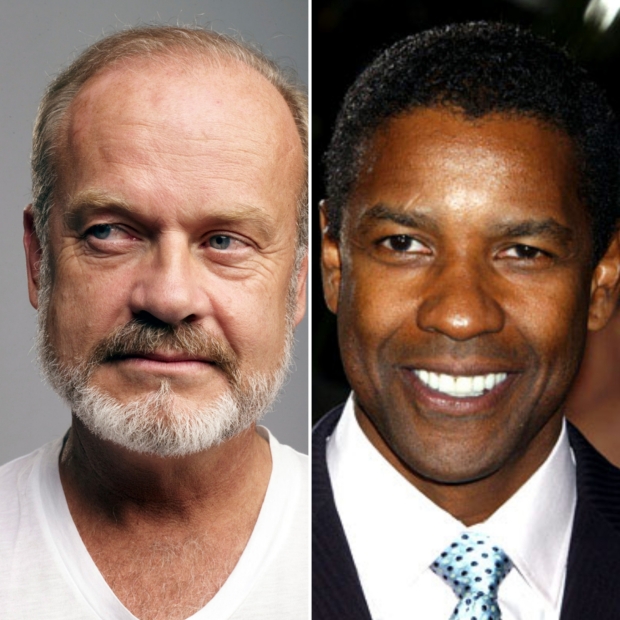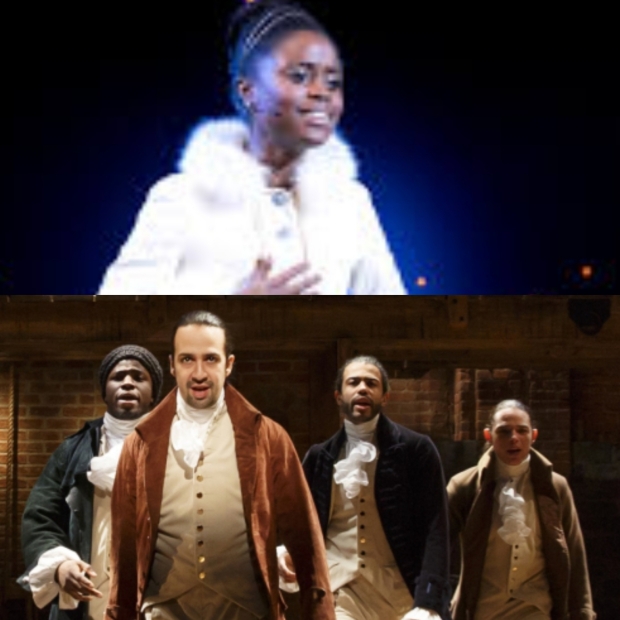I’ve been writing a lot about me and my own thoughts about life and love blah blah blah…. Thank you all for being there as I make my way through the inner working of my mind. This week, I want to turn the focus back to theatre. My career is an interesting one is that it’s very collaborative but there is always an ongoing debate about whose voices get to be heard and/or the lens and context through which those voices are presented.
A few months ago, I wrote a piece about some of the nuances of black theatre that I don’t completely understand. While there are a few things that still baffle me (WHY ARE WE TALKING TO THE STAGE OR SCREEN Y’ALL?! WHY?! PLEASE JUST LET THE FOURTH WALL BE!), I am beginning to come around to the communal and cathartic experience that black theatre can provide. In the post I think I made a glaring mistake though; there is a HUGE – like Donald Trump gesturing with his baby hands huge – difference between black theatre and black performances. When I think of Black theatre, playwrights like August Wilson and Suzan Lori Parks come to mind. Their works speak to the collective human experience but on a deeper level touch on subjects that are unique to the black experience and the black community. For the sake of this writing, I would say that black performances include black performers (duh) but the audience does not leave changed; they may be entertained by the antics, but the content of the play does not go much deeper beyond the surface.
…if you were hoping to see a production of fences in which Kelsey Grammar portrays Troy Maxson, don’t hold your breath. You have a better chance of seeing the Cleveland Browns
win the Superbowlfinish a season with at least 5 wins (I’m still trying to be realistic here people).
This time around, I would like to look at the debate surrounding the practice of color blind casting. For those of you who do not know, color blind casting refers to the practice to cast a show regardless of race. This means that if a family is being portrayed, there might be a white mother, a Latinx father and two black children. Many advocates of color blind casting say that they prefer to look at talent and who is best for the role. Detractors of the practice feel that it is unrealistic or even call the practice reverse racism or discrimination. They will often cite a clause in the August Wilson estate that states that his plays must be cast appropriately based on race; in other words, if you were hoping to see a production of fences in which Kelsey Grammar portrays Troy Maxson, don’t hold your breath. You have a better chance of seeing the Cleveland Browns win the Superbowl finish a season with at least 5 wins (I’m still trying to be realistic here people).

You’re trying to picture it now, aren’t you?
When people complain about colorblind casting – and you know the ones I’m talking about: “I’m not racist, but Spiderman is SUPPOSED to be white” – what they’re really complaining about is the invasion of non-white bodies into white spaces.
So where do I stand on color blind casting? I think it’s a very tricky subject. I understand wholeheartedly Mr.Wilson’s need for his vision to remain in tact. These are our stories. They chronicle are plight, our struggle, how we love and how we grieve. There is a cathartic release – at least for me – when we are able to see an accurate reflection of our lives presented in a way that mirrors our true experiences. The sense of disconnect is gone. Whitewashing is so prevalent in the entertainment industry – and I’m not just talking about casting white actors in roles that logic would dictate requires an actor of color. I’m also talking about the way in which characters of color are presented. When told through a White voice, we lose some sense of autonomy. We are no longer the heroes of our stories but instead the victims who need saving (and the one doing the saving is typically the white saviour). Or we are introduced to help teach the white character a lesson or to open their eyes to the reality of the world. In instances where a black body is created by a white voice, there is some sort of disconnect. It’s like we’ve entered the uncanny valley for the black experience. All the components are there, but something feels slightly off.
When people complain about colorblind casting – and you know the ones I’m talking about: “I’m not racist, but Spiderman is SUPPOSED to be white” – what they’re really complaining about is the invasion of non-white bodies into white spaces. For those of you wondering, Elijah Anderson describes white spaces as “overwhelmingly white neighborhoods, schools, workplaces, restaurants, and other public spaces” which “blacks perceive to be informally ‘off limits’ to them” (http://sociology.yale.edu/publications/white-space ; you can read the whole article here or search for another similar definition on Google). Enforcing the belief that only white people are allowed to inhabit these spaces is extremely detrimental. I’m positive that this goes without saying but for the sake of word count I’m gonna say it anyway by continuing to view colorblind casting as something that is revolutionary, we are continuing the idea that black and brown bodies are not normal, that they do not have a natural place in society. I can only speak for myself when saying this but, I’m sure that I’m not the only one who’s tired of my black body being used to make a statement or as a gimmick.
Now that brings me to an interesting point. Hamilton made waves for its use of non-traditional (again, what makes my black body non-traditional?) casting. Denee Benton, as I mentioned in an earlier post, was cast as a heroine of classic Russian literature in recent hit Broadway show.

I bring up these two examples because they are clear instances of non white bodies inhabiting realms that have a historic context of being white spaces. For the sake of accuracy, do we demand that these roles only be played by white actors? Or will doing so continue to perpetuate an idea of white bodies maintaining ownership over these domains? Lin Manuel-Miranda explained that he felt that having minority actors portray the Founding Fathers allowed audience members to see themselves in the fabric of American history in a way that makes the story accessible to them (as opposed to just being portrayed as slaves or inconsequential to the formation of this country). And when you stop to think about, theatre has already set a precedent for being a white space. There’s a reason why we differentiate between ‘theatre’ and ‘black theatre’; the latter indicates that it speaks to a particular experience that is often ignored in mainstream theatre. The next time you hear the news that a popular character is being portrayed by a black actor, as the twitter fingers are warming up, ask yourself this: does the character’s whiteness affect the story in any way at all. Superfluous descriptions aside (i.e. “Mary Jane stared longingly into Peter’s deep blue eyes”….first of all, black people can have blue eyes too AND his blue eyes are not the ones doing the web slinging) 9/10 it’s not doing anything to help move the story along. Is Hermione the best witch of her year because she’s white, or is it because she happens to be a very intelligent and precocious child, a little magical Rudy Huxtable if you will? Most often, a character is portrayed as anything other than white when the experiences of that ethnic group play a huge role in influencing the story.
So what is the answer? Truthfully, I don’t know if there is a right or wrong answer. As an actress, I obviously want to get work. Colorblind casting does me a service in that it at least lets me get my foot in the door. I also see the need and importance for black theatre. Until we normalize the black experience in this country (or the experience of any other minority group) there will always be a need for a space where our voices can be heard without criticism. The best thing that nonminority directors can do is to serve as an ally. Listen to the stories being told. Approach them from a critical context; don’t be patronizing just because you are put in a position where your normalness is not validated. It’s ok to not have all the answers. It’s ok to forfeit your power in a space where you were never meant to be in control.

One thought on “Can we paint with all the colors of the wind?”